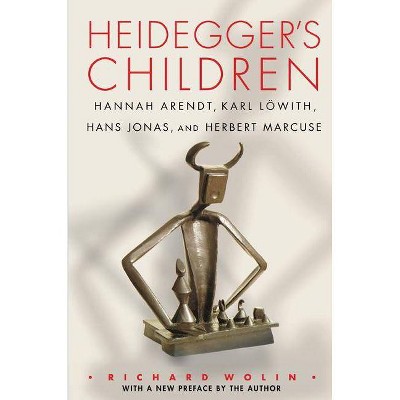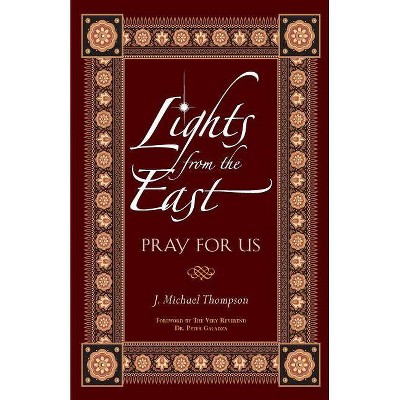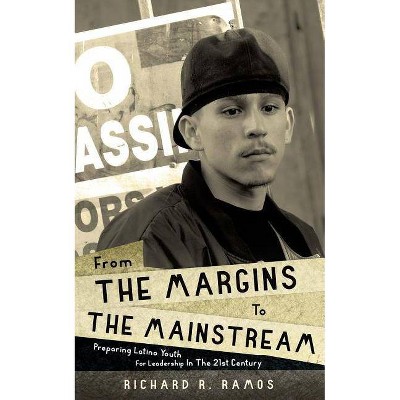The Wind from the East - 2nd Edition by Richard Wolin (Paperback)

Similar Products
Products of same category from the store
AllProduct info
<p/><br></br><p><b> Book Synopsis </b></p></br></br><p><b>How Maoism captured the imagination of French intellectuals during the 1960s</b> <p/>Michel Foucault, Jean-Paul Sartre, Julia Kristeva, Phillipe Sollers, and Jean-Luc Godard. During the 1960s, a who's who of French thinkers, writers, and artists, spurred by China's Cultural Revolution, were seized with a fascination for Maoism. Combining a merciless exposé of left-wing political folly and cross-cultural misunderstanding with a spirited defense of the 1960s, <i>The Wind from the East</i> tells the colorful story of this legendary period in France. Richard Wolin shows how French students and intellectuals, inspired by their perceptions of the Cultural Revolution, and motivated by utopian hopes, incited grassroots social movements and reinvigorated French civic and cultural life. <p/>Wolin's riveting narrative reveals that Maoism's allure among France's best and brightest actually had little to do with a real understanding of Chinese politics. Instead, it paradoxically served as a vehicle for an emancipatory transformation of French society. Recounting the cultural and political odyssey of French students and intellectuals in the 1960s, <i>The Wind from the East</i> illustrates how the Maoist phenomenon unexpectedly sparked a democratic political sea change in France.</p><p/><br></br><p><b> From the Back Cover </b></p></br></br><p>"Most accounts of 1968 in Paris are either bathed in nostalgia or marinated in disappointment. We are thus all in Richard Wolin's debt for his careful and dispassionate account of those years. <i>The Wind from the East</i> is by far the best history I have read in any language of the Maoist moment in France. Sympathetic without being apologetic, Wolin is particularly deft at evaluating the heritage of France's controversial cultural revolution for contemporary politics. No one interested in the upheavals of the sixties should miss this book."<b>--Tony Judt, author of <i>Postwar: A History of Europe since 1945</i></b></p><p>"Richard Wolin has written a fascinating account of the French Left's Maoist moment, which pays all due attention to its follies and fantasies, but also manages to capture and to value its liberating effects."<b>--Michael Walzer, Institute for Advanced Study</b></p><p>"The imperative to unify theory and practice has often led intellectuals down garden paths, perhaps none as hazardous as the one followed in the l960s by the French thinkers who embraced Mao's Cultural Revolution from afar. With understanding for their motivations, exasperation for their self-delusions, and appreciation for the unintended consequences of their actions, Richard Wolin recounts with sympathetic irony the follies and glories of intellectual commitment at its most extreme."<b>--Martin Jay, University of California, Berkeley</b></p><p>"A lively and engaged history, sure to provoke debate."<b>--Warren Breckman, University of Pennsylvania</b></p><p/><br></br><p><b> Review Quotes </b></p></br></br><br>Praise for the previous edition: A fascinating and dispassionate account of one of the more curious follies of recent times.<b>---Jeremy Jennings, <i>Standpoint</i></b><br><br><i>The Wind from the East</i> will be a rewarding and exciting reading for all those with an interest in French studies, politics, and intellectual history.<b>---Viola Brisolin, <i>European Legacy</i></b><br><br>[A] fascinating and dispassionate account of one of the more curious follies of recent times.<b>---Jeremy Jennings, <i>Standpoint</i></b><br><br>Even as he is documenting the delusions of the sixty-eighters--often with considerable wit, and with a seemingly encyclopedic familiarity--Wolin grants credence to their skewed perception of the status quo in France and in the West more generally. Disagreements and exasperations aside, I found this book compulsively readable. The history of Sixties is a long way from being exhausted.<b>---John Wilson, <i>Books & Culture</i></b><br><br>Praise for the previous edition: <i>The Wind from the East</i>must be regarded as a monument of committed scholarship. It is also a fascinating chronicle of people who, however ludicrous they may seem at times, did on occasion think and act with profound seriousness. For that reason the book is a valuable addition to the literature of the era.<b>---David Gress, <i>Wall Street Journal</i></b><br><br><i>The Wind from the East</i> tells the story of the '68 generation with a much needed awareness of the complexities of its intellectual odyssey. It is, in the end, a meditation of considerable depth on the formation of political judgments. As such, it is an important book, both within the field of French history and beyond.<b>---Michael C. Behrent, <i>H-France Review</i></b><br><br><i>The Wind From the East</i> must be regarded as a monument of committed scholarship. It is also a fascinating chronicle of people who, however ludicrous they may seem at times, did on occasion think and act with profound seriousness. For that reason the book is a valuable addition to the literature of the era.<b>---David Gress, <i>Wall Street Journal</i></b><br><br>Praise for the previous edition: Wolin skewers irresponsible intellectual posturing in a manner reminiscent of the late Tony Judt, but reveals an underlying sympathy with the goals and ideals, if not always with the choices, of the<i>gauchistes</i>. A masterful performance.-- "Choice"<br><br>Richard Wolin has provided us with an informative and readable account of a fascinating episode in twentieth-century French intellectual history, knowledgeably placing it into its wider biographical and political contexts.<b>---Moritz Föllmer, <i>French History</i></b><br><br>Wolin argues that fascination with the Great Proletarian Cultural Revolution reflected, not simply a taste for exoticism, but a delayed response to postwar capitalist modernisation.<b>---Scott McLemee, <i>The National</i></b><br><br>Wolin surveys a wide range of French intellectuals' responses to Mao's China. The best of these responses creatively appropriate the concept of cultural revolution, leading to a new libertarianism and to the embrace of causes such as gay rights, women's liberation, and prison reform; the worst of them became fatally compromised by a blind endorsement of the crimes of Chinese communism. . . . Wolin skewers irresponsible intellectual posturing in a manner reminiscent of the late Tony Judt, but reveals an underlying sympathy with the goals and ideals, if not always with the choices, of the Gauchistes. A masterful performance.-- "Choice"<br><p/><br></br><p><b> About the Author </b></p></br></br><b>Richard Wolin</b> is Distinguished Professor of History, Comparative Literature, and Political Science at the City University of New York Graduate Center. His books, which include <i>Heidegger's Children</i> and <i>The Seduction of Unreason</i> (both Princeton), have been translated into ten languages. His articles and reviews have appeared in <i>Dissent, the Nation</i>, and the <i>New Republic</i>.
Price History
Cheapest price in the interval: 19.95 on November 8, 2021
Most expensive price in the interval: 19.95 on December 20, 2021
Price Archive shows prices from various stores, lets you see history and find the cheapest. There is no actual sale on the website. For all support, inquiry and suggestion messages communication@pricearchive.us




















